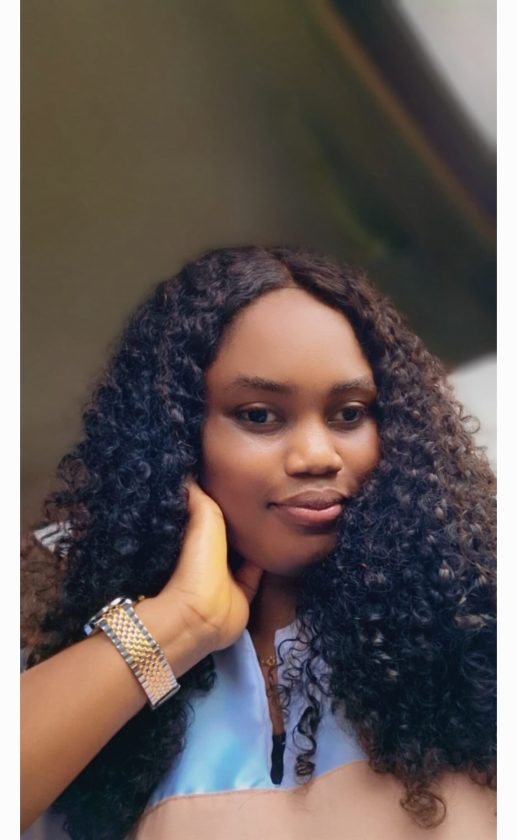By Oreva Godwin
A lot of us have had traumatic childhoods. Some have healed, while others still carry the scars. Trauma comes in different forms, from our parents, siblings, relatives, childhood friends, teachers, and even religious leaders.
Many of you know that when I write, I do so with passion, straight from the heart. I try to paint clear pictures that play in the minds of my readers as they read through each story. This is mine.
I started school at age two. I remember everything like it was yesterday. You see, I have what is known as hyperthymesia. I was barely a year old, when I developed a terrible ear infection. My parents spent a lot trying to cure the disease but it refused to go. It started as rashes, turned to wound, and then to greenish fluid which constantly oozed from my left ear.
It had no smell. And as a child, I wasn’t conscious of my looks, but once I started nursery school, I became painfully aware of my sickness. I was discriminated against; brushed aside. I felt unloved. My school became my prison. Even though the ear infection wasn’t contagious, my school made it look like it was and pushed me aside.
It was a school for the elite, and my parents, wanting the best for us, unknowingly sent me into a place of torment. I was just two, yet the hate I faced was bigger than my age.
I remember it all like yesterday; the pain never truly left me. I became an outcast. Silent. Withdrawn. Almost like a mute. My teacher took me to the extreme end of the classroom and never engaged me. When other children gathered to sing poems and dance, the first time I tried to join, I was told to return to my seat.
I just sat and watched them laugh and clap. Sometimes the teacher would slap me so hard during tests and exams that fluid, sometimes mixed with blood poured from my ear. She often would clean me up roughly, leaving me with injuries.
But I didn’t cry. I never cried. I would only bow my head in shame. I was audacious for a little girl. At times, when I realized I was punished while others were spared, I would look the teacher straight in the eye. My bold stare unsettled her, and she would slap me harder, calling me a witch, then throw tissue at me to clean myself.
I also had a bully, the child of an influential man, who was worshipped by the school. He tormented me daily. Sometimes, while I slept, he would drive broomsticks deep into my left ear, and I would jolt awake in sharp pain. My teacher never intervened. She never warned the boy. She kept a blind eye.
For a year, I endured the bully until one day I felt I had had enough. That morning, I went to school ready. He tried his usual game, shoving broomstick into my ear while the rest of the class laughed. I rose up, grabbed him, and designed his face with my fingernails.
The boy cried and reported me. They dragged me to the headmistress’s office. The moment I was released back to class, I went straight to him again and redesigned his face. Over and over, back and forth, punishment and revenge, until they finally hid the boy from me and branded me a witch.
By then, I had come to hate the school. On my way there, I would happily sing the poems I was taught, sing with my dad while he drove my sister and I to school. But the moment I sighted the school building, it triggered me. I would start to cry, throw tantrums, and plead with my father not to leave me. My teacher would act sweet in his presence, then slap and push me into class the second he was gone.
My senior sister also schooled there. She saw the harsh treatment but kept silent. She only tried to show me love. Since my class closed earlier, I would sat quietly in my sister’s class and waited for her.
Her youth corper teacher became my small light. Always smiling at me, but I never smiled back. No one smiled at me, except my family. It was unsetling to me.
One day, while I ate my bread, the youth corps teacher asked for some. I gave him my usual bold stare, but he only smiled. When I finally stretched the bread, he bit it, smiled, and said, “Thank you.”
I was shocked. Adults usually say “no thanks” when I offered. But he really ate it. For the first time, I felt loved. I smiled shyly, even blushed. But his service year ended too soon. When he left, my little light left with him, and I sank back into my dark reality.
Fortunately, when I was five years old, my church opened a new school, and my mom transferred me there. She was excited. I was not. I panicked, “What if this school is worse?” I had grown used to being unloved.
On my first day at school, I entered quietly, hand covering my ear. I spotted an empty seat at the back and took it. That was my place, I thought. Behind. Alone.
Then our teacher walked in. Uncle Sam. Always cheerful, always smiling. The opposite of my old teacher. He asked us to introduce ourselves. I stayed quiet. When it was my turn, he insisted. I gave him my usual cold stare.
He came closer and noticed my hand covering my ear. He gently asked me to lower it. I looked at him, bracing for a slap. But his eyes held something else, love. The kind my father’s eyes carried. For the first time, I let my hand fall. He saw the wounds, smiled, and said softly, “Pretty girl, what’s your name?”
Pretty? Me? My voice was so faint that he bent to hear me. He smiled, welcomed me, and made me sit in the front row. I was shocked. That wasn’t my place. But Uncle Sam wouldn’t let me hide.
When the class recited poems, I knew the words but stayed quiet. Uncle Sam didn’t leave me behind. He pulled me to the front, danced with me, clapped with me, until I laughed and jumped like the other kids. For the first time, I felt warmth.
Even when fluid dripped from my ear, he cleaned me gently. I just looked at him in shock. That day, he wasn’t just a teacher. He was my school father. I was so moved by this strange found love that i hugged him, and he hugged me back and carried me in his arms to my class.
Uncle Sam made me visible. He saw through my pain and brought out the real me. He made me his favourite pupil and never stayed a day without calling my name and checking up on me. In less than a year, I transformed from a mute child to a playful, happy girl. My stigma no longer defined me.
Years later, in secondary school, I passed by my former school. The sight triggered me. Anger, anxiety, memories. I even had to face the same teacher who tormented me constantly as she passed my street to church. Interestingly, the headmistress of my old school became the headmistress of my new school when I was promoted to primary two.
But I survived. I healed.
How about you?
Are you still living inside your trauma, letting it shape you into bitterness and resentment? Or have you chosen to forgive, to heal, and to move forward?
Nothing beats healing. Nothing beats freedom. If a little girl with a wounded ear could find joy again, so can you.
The Southerner
REDEFINED
Friday, September 19, 2025




